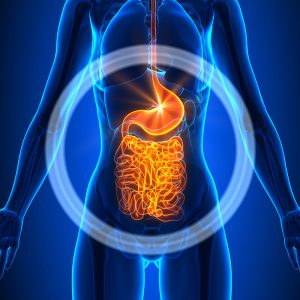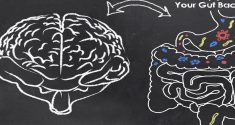PTSD is a challenge to modern medicine, leaving many to suffer with debilitating symptoms. New research suggests that stomach bacteria may play a key role.
Short for Post-Traumatic Stress Disorder, PTSD is a disorder that occurs after people have experienced a severe psychological injury or trauma. Sufferers have a range of health issues from sleep disorders to anxiety to flashbacks, in which they relive traumatic experiences over and over again. While some people find relief from psychotherapy, antidepressants or other psychotropic medications, many find that their symptoms are resistant to all conventional therapies. However, new studies linking PTSD and stomach bacteria may offer new avenues of treatment.
Gut Bacteria, Circadian Rhythm and Whole Body Health
The bacteria in our gastrointestinal tracts are essential to good health. Not only do these bacteria help us to break down and absorb certain nutrients, but they also play an important role in mental health. This connection is known as the gut-brain axis.
Even more interestingly, these bacteria have their own unique circadian rhythms. These are linked to our bodies multitude of other rhythms, as we release hormones that affect our gut activity at different times of day. When our circadian rhythms are out of whack, the bacteria in our stomachs and intestines also get off track. This is believed to be part of the reason insomnia and other circadian rhythm disorders have been linked to obesity and metabolic disorders. Our health affects our gut bacteria and their health affects our own wellbeing in an endless loop. This loop, a new study suggests, may be crucial in treating certain psychological illnesses such as PTSD.
PTSD and Gut Bacteria
 Healthy gut bacteria and unhealthy bacteria release different signals with different timing. These biochemical signals in turn affect our brains, especially the way we process stress. This can be seen in humans as well as almost all mammals. Mice who are more easily stressed out and are prone to anxiety have imbalances in their gut bacteria. Emotionally resilient mice, on the other hand, have well-balanced microflora.
Healthy gut bacteria and unhealthy bacteria release different signals with different timing. These biochemical signals in turn affect our brains, especially the way we process stress. This can be seen in humans as well as almost all mammals. Mice who are more easily stressed out and are prone to anxiety have imbalances in their gut bacteria. Emotionally resilient mice, on the other hand, have well-balanced microflora.
Even more promising, the anxious mice had improved moods and lower anxiety levels when they were fed gut bacteria isolated from resilient mice. What does this mean for humans? For starters, it may be possible to treat PTSD and a variety of disorders affecting mood and anxiety by balancing gut bacteria. In addition, people with PTSD that does not respond to treatment may be able to have fecal tests that identify whether they have a stomach bacteria imbalance that is affecting them.
PTSD and Public Health
Another way that this new research may help people suffering from PTSD is by offering a physiological basis for their symptoms. Around eigth percent of the population deals with PTSD at some point in their life, so this is a more common problem than many realize. As with all mental illness, people are often reluctant to admit that they need help with their anxiety and emotions. This research demonstrates that their difficulties are indeed not all in their head, but rather, may have to do with their stomach.
While more studies will be needed to identify the bacteria that contribute most to emotional resilience in humans, this research offers a promising new way to treat PTSD. Knowledge of links between PTSD and other systems could be a powerful tool for improving the public health.







